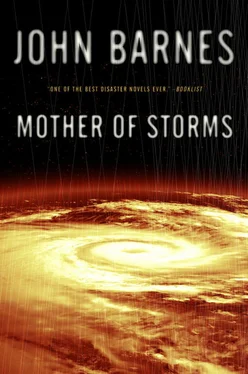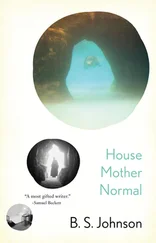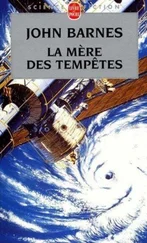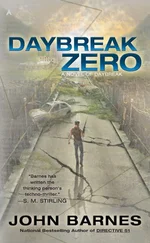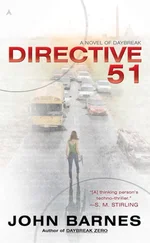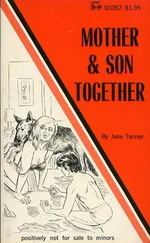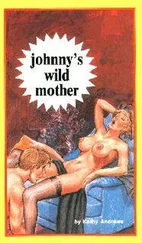Still mostly expecting to wake up, he goes up and gets Alice, and in her pajamas and bathrobe, her data jack plugged in, she stands in the backyard, holding her father’s hand, looking out over the big combers rolling in to St. Helena Bay. It is almost as bright as day in the light reflected by the enormous full-moon of 2026RU overhead. Only the brightest stars are visible in the glare.
Alice says nothing—she’s barely awake—and he wonders if this is all a vivid dream—
Far out to the west, a glowing bar appears in the sky, like a long, thick white line. As they watch, for two minutes or so it grows longer and wider, and its ends begin to round. Then, when it is quite low to the horizon, it glows a bright orange, and then a sharp mixture of orange and white flame, leaving a long white streak behind itself like the biggest shooting star he’s ever seen.
He feels Alice clutch his hand; she’s staring at the sky open-mouthed as the huge object descends.
Minutes later, it has become a great, burning oval in the sky, ten times as wide as a full moon—and then, in a great rush, it shatters into uncountable shooting stars. Very faintly, just as the last shooting stars fade from the sky, they hear a booming rumble.
The phone in Nathan Zulu’s pocket rings. He picks it up, and there’s Louie Tynan. “May I speak to Alice, Dr. Zulu?”
He hands the phone to her, and hears Louie’s voice asking “Did you like it?”
“It’s really flat, sir,” she says.
“That means ‘good,’” Nathan adds over her shoulder.
Louie laughs. “There’s a relief. I just wanted you to see that, Alice. I’m a big fan of Innocent Age .”
“I’m a big fan of yours,” she says, beaming.
They talk for a minute or two more, and then Tynan clicks off. Alice’s eyes are shining, and she hardly stops babbling the whole time he carries her up to her bedroom and tucks her back into bed.
It occurs to him that it’s not going to be easy to tell his daughter about Father Christmas, as his mother suggested he should do soon. She already believes in things that are a lot more impossible—because they’re true.
The next paper on the pile to be graded is “Jung: Elements of the Fantastic in Everyday Life.” Probably the boy cribbed it from somewhere. In a few minutes, Dr. Zulu is settled back in to grading. Even with the weird glow outside, and his daughter talking to comets, life goes on.
“That’s the latest and strangest of it,” Lynn says to President Hardshaw. “He just pitched one in over the South Atlantic for the hell of it. No reason as far as we can tell. But it’s not like he’s being secretive… just that he does so many things so fast that we can’t quite keep up with all of it.
“Which reminds me, he did have good news. Louie says that he’s already tried out the masers experimentally, and it looks like he’ll be able to break the crystals into oxygen and hydrogen again as well.”
“The crystals?” Hardshaw asks. She has to raise her voice slightly, because the salty rain pouring onto Charleston is beyond anything the Amazon ever got until now, but they’re no longer afraid that the buildings won’t hold.
“Well, when those ice disks burst from evaporation and the shock wave under them, twenty miles up, the water they release re-forms as ice crystals almost instantly. It’s the crystals that form the clouds that block the sun. What Louie is worried about is how to remove the crystals on the night side of the Earth, because at night they keep heat in. Apparently he has some way of using a maser—a microwave laser—to blow them apart so vigorously that the hydrogen separates from the oxygen, and the hydrogen will mostly dribble off into space.”
Hardshaw nods. “All right, that’s good enough for me to fake it with if I have to.”
“And it’s not the only strange thing, Ms. President. Reports from Carla are beginning to turn up in computer bulletin boards all over the Earth—proper citations and all. She’s writing something like four scientific papers per minute, and just throwing them to the winds.”
“But is all this going to work, though?” Hardshaw asks. She takes a long sip of hot coffee. Outside, she knows the former West Virginia capital—now the temporary site of the government of the United States—is ringed in sandbags, and that two hundred Marines are fighting to keep the wall in place against the raging current in the street. Supposedly as soon as the rain lets up, even a little, that will stop running; meanwhile, semper fi and all that, they are out there in that rain so thick that to slip is to risk drowning. “Before we talk more, compliments to the Commandant and send out food and coffee for the Marines. If we have to we can let Congress starve.”
“Part of them are out there working with the Marines,” Lynn notes. “The rest can starve, though.” She turns to give the order, then gets back to the screen. “What it looks like is that somehow she—Carla Tynan, I mean—is writing up all sorts of reports on ecological impacts. The paper that caught their attention at the science branch at NSA was this one about zapping the ice crystals with masers. It looks like most of the hydrogen will go off into space, just as planned—its molecular velocity is way above escape velocity, and at that altitude about sixty percent of the available directions will carry it away. The oxygen’s another matter; that much highenergy monoatomic oxygen is going to cause a lot of ozone formation.”
“Isn’t that a good thing? I mean, won’t that repair the holes in the ozone layer?”
“According to Carla it’ll do more than that—they haven’t had time to read the full paper, but according to the abstract the ozone layer is going to be much thicker than it’s ever been. That means a much more complete shut-out of ultraviolet light, and that means that a lot of pollinating insects, who see their way to the flowers by ultraviolet, aren’t going to be able to find the flowers they’re supposed to pollinate. So she’s giving notes on what can be expected as ecological impacts during the recovery.”
“There’s definitely going to be a recovery?”
“Carla thinks so, anyway. And if you count raw processing capability, she and Louie both have brains trillions of times the size of either of ours. I don’t see that we can do much but take her word for it.”
Hardshaw leans back and finishes her coffee. She used to count cups of the stuff and try to make sure she didn’t consume too much; right now, too much doesn’t seem possible. Someone hands her a hot dog and she folds it into her jaws, swallowing all but mechanically. She glances up into the concerned face of a woman she hasn’t seen before, a gray-haired woman in a red apron; a closer look reveals that this woman is wearing the uniform of some convenience-store chain. “You okay, Ms. President?”
“I’ve been better. So you’re catering for the government of the United States?”
“Yep. When this is over, we’re going to have signs up every damn place saying ‘Presidential Hot Dogs and Cheese Nachos.’” The gray-haired lady grins at her, and Brittany Lynn Hardshaw grins back.
“You know I worked at a convenience store when I was a kid?”
“Think I remember reading that in the text news.”
“You know, looking back—I’m still glad I didn’t stay with that job.” It’s not the best joke of Hardshaw’s life, but the gray-haired woman laughs. Hardshaw sees that her nametag says she’s “Lorraine.” “You have kids or grandchildren, Lorraine?”
“Yep. Up the hill a bit, and we got a concrete foundation, and their dad’s with’em. They should be fine.”
“Well, when all this is over, you tell them from me—” Hardshaw thinks for a long minute. To rebuild and go on? People do that. That she’s counting on them to rebuild America? Good question whether it will be America by the time it’s rebuilt; who knows what kind of government or politics will come out of all this. “To vote Republican,” she finishes.
Читать дальше
